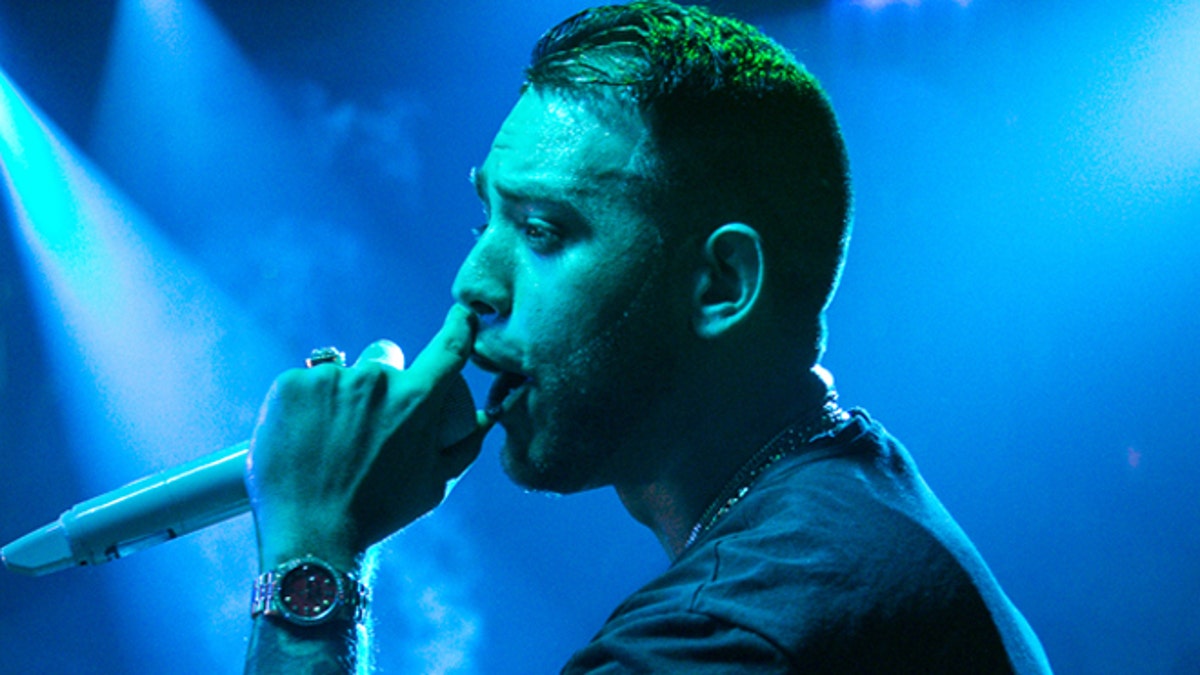
Courtesy: Messiah
New York – When it comes to rap and hip-hop, Latinos making an imprint on the culture is not exactly a new phenomenon. In fact, Latino rappers in the United States with bicultural roots have been one of the many pillars that have stood firmly throughout the course of the 40-plus years the genre has existed.
Prince Markie Dee (Mark Morales) was one-third of the pioneering rap group The Fat Boys in the 1980s.
Later Mello Man Ace had some measure of success. Soon he would be followed by his cousin, Sen Dog, who along with B-Real and DJ Muggs broke ground critically and commercially as Cypress Hill in the 1990s.
The tide continued to rise into the 2000s with rappers Fat Joe and Big Pun carrying the torch. Eventually, acts such as Daddy Yankee, Tego Calderón and Don Omar demonstrated that reggaeton and Latin rap could achieve mainstream popularity and commercial success outside of traditional markets.
Which brings us to the case of the genre’s latest emerging star.
Messiah El Artista, whose given name is Benito Emmanuel Garcia, was born in the Dominican Republic town of Santiago de los Caballeros and was uprooted to the Hamilton Heights section of New York City by his parents at the age of 2.
By all accounts Messiah’s childhood in Harlem wasn’t an experience rooted in deep culture shock. Whereas most Dominican boys growing up in northern Manhattan have aspirations of becoming the next Pedro Martínez or David Ortíz, he had a different idea of how to make a name for himself.
“I come from a line of [singers],” Messiah, who grew up on 136th Street and Broadway, told Fox News Latino. “My father used to sing. His uncle used to sing. His cousin used to sing. And my grandmother used to sing. So music literally runs in my family.”
He went on, “I remember growing up and hearing my father listening to José José, Sandro [de América] and Raphael. Those were the [singers] I grew up listening to.”
The Latin rapper has built quite an impressive résumé over the past few years. Over the course of the past two years he has put out a slew of singles and mix tapes which have drawn some major buzz in the industry. Some of these tracks include “Tamo Lindo,” “Como lo Capo” and “Robinson Cano” — an ode to former New York Yankee and current Seattle Mariners All-Star.
Messiah’s even earned the moniker of “The Spanish Remix King” for his efforts on English language tracks as evidenced by his version of Future’s “Commas.”
On top of that he has collaborated with the giants of reggaeton such as J. Balvin, Farruko and Nicky Jam. And if that isn’t enough, Messiah also has garnered the attention and admiration of hip-hop luminaries Jay Z, 50 Cent and Funkmaster Flex.
All of which means that Messiah is poised for major-label success despite not being signed to one yet.
The majority of what he has managed to accomplish thus far has been via his imprint, AY! Music. Social media platforms such as YouTube and Instagram have let his music and budding brand build a loyal following of sizeable proportions in Latin America, the Caribbean, Europe and, of course, the Big Apple.
His fan base is craving for more, and Messiah has no qualms about giving it to them.
Recently he was at Manhattan’s fabled Quad City Studios as part of the first wave Hennessy’s private listening sessions. He debuted his most recent single, “Sueño Mojado” (“Wet Dream”), for the press.
The song, which was released in June, is the first offering from his highly anticipated LP, “Made In Europe” which is slated to hit the market in July. The listening party, held the day before the release of the single, served a dual purpose as it also celebrated Messiah’s 26th birthday.
A second single, “Joder Tio,” can be streamed through Messiah’s Apple Connect profile. Messiah explained that it’s a tribute to a Spanish expression that translates more or less to “Damn, dude!”
Other tracks include “Ay!” and “Mayweather.”
“DJ 40 actually came up with the name ‘Made In Europe.’ We were in Europe. We knew were going to go away for 35 days. I hadn’t been in the studio for a long time,” Messiah told FNL.
So he assigned DJ 40, one of his producers, with creating a mobile studio that they could use on the road.
“I asked him ‘How much you need?,’” Messiah said. “I gave him the money, and he literally went to Sam Ash, and he [filled] a maleta with studio equipment.”
He added about the studio-in-a-suitcase, “We’d be in Treviso, Italy, and 40 would whip out his maleta, set up and record a song. It was so dope to record on the go. And that was the hashtag I was using. #RecordingOnTheGo.”
In the end, Messiah said, “Only three songs were not recorded in Europe.”
In charge of fine-tuning the album’s production were Grammy Award-winning producers A&X and The Reason along with Evo Jedis, DJ Urba and Luis Romero.














































